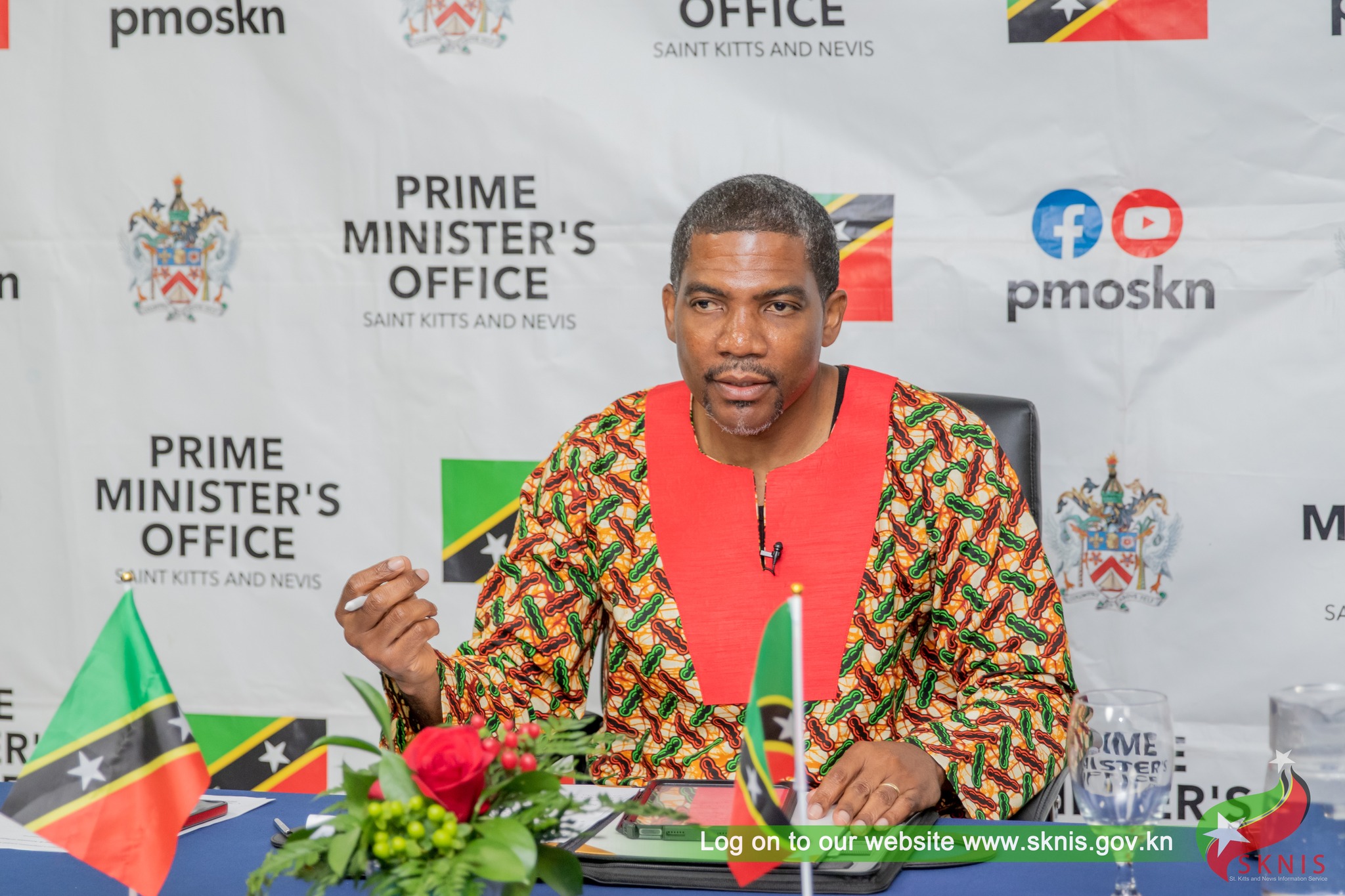Prime Minister Emphasizes National Unity in Combating Crime and Violence
A Paradigm Shift in Crime Prevention: Saint Kitts and Nevis Embraces a Public Health Approach
Saint Kitts and Nevis, a dual-island nation in the Caribbean, is celebrating a significant milestone in its ongoing battle against crime and violence. The year 2025 has dawned without a single recorded homicide, a remarkable achievement that underscores the effectiveness of the nation’s novel approach to crime prevention. Prime Minister Dr. Terrance Drew attributes this success to a collective, all-of-society strategy that tackles crime and violence from a public health perspective, a stark contrast to the previous administration’s allegedly corrupt and partisan tactics. This innovative approach emphasizes collaboration, unity, and addressing the root causes of crime, marking a paradigm shift in the Federation’s crime-fighting efforts.
Prime Minister Drew’s unwavering commitment to a holistic approach to crime reduction has been instrumental in achieving this unprecedented period of peace. He has consistently championed the idea that crime is not merely a law enforcement issue but a complex social problem requiring multi-sectoral intervention. This philosophy has translated into a whole-of-government approach, with various ministries, community organizations, and citizens working together to create a safer and more harmonious society. The government has prioritized addressing the underlying socioeconomic factors that contribute to crime, such as poverty, lack of education, and limited opportunities, and has implemented programs aimed at empowering vulnerable populations and fostering community development.
The collaborative spirit fostered by the Drew administration has been crucial to the success of the crime reduction strategy. Unlike previous efforts that were marred by political divisions and questionable practices, the current approach emphasizes unity and inclusivity. The prime minister has actively engaged all stakeholders, including opposition parties, religious leaders, sports groups, youth organizations, and community leaders, recognizing that a collective effort is essential to achieving lasting peace. This inclusive approach has created a shared sense of ownership and responsibility for crime prevention, fostering a climate of trust and cooperation between the government and its citizens.
The Prime Minister has been vocal in his criticism of past crime-fighting initiatives, particularly the "corrupt" peace program implemented by the previous administration. He argues that such programs, driven by political expediency rather than genuine concern for public safety, are not only ineffective but also detrimental to the nation’s long-term well-being. He contrasts this with the current approach, emphasizing that it fosters genuine rehabilitation and provides individuals with meaningful second chances, rather than simply seeking to control or suppress criminal activity.
The government’s commitment to evidence-based strategies is another defining feature of its approach. By adopting a public health lens, the administration acknowledges the complex interplay of social, economic, and environmental factors that contribute to crime. This perspective allows for a more nuanced understanding of the issue, enabling targeted interventions that address the root causes rather than merely treating the symptoms. This shift has been informed by regional discussions and expertise, notably the contributions of Dr. Izben Williams, who has been instrumental in advocating for a public health approach to crime and violence throughout the Caribbean.
The success of this public health approach is not solely attributed to government initiatives. The prime minister acknowledges the crucial role played by civil society organizations, community groups, and individual citizens in creating a culture of peace. He has highlighted the efforts of the Citizen Security Task Force, a multi-agency body responsible for coordinating crime prevention efforts, as a testament to the power of collaboration. He has consistently emphasized the importance of citizen engagement and has urged all citizens, regardless of their political affiliations, to play their part in maintaining peace and security.
The positive results achieved in such a short timeframe since the Drew administration took office in August 2022, serve as a compelling testament to the effectiveness of the new approach. The significant drop in homicides and overall crime rates highlights the potential of collaborative, evidence-based strategies to transform communities and enhance national security. The administration is committed to building on this momentum, strengthening partnerships, and continuing to invest in programs that empower individuals and foster social cohesion. The ambitious goal is to sustain this progress and establish Saint Kitts and Nevis as a model of peaceful coexistence and sustainable development in the region. This ongoing commitment to a public health approach to crime prevention promises to continue making a positive impact on the lives of the citizens of Saint Kitts and Nevis, paving the way for a brighter and more secure future.
Share this content:












Post Comment